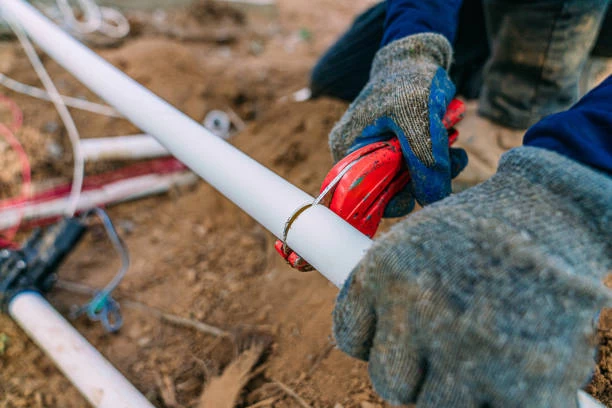Introduction to PPH Piping Construction
PPH piping systems are essential in industries requiring durable and chemical-resistant materials. To ensure safe and efficient installation, it is vital to follow specific precautions. This guide provides insights and references real-world PPH piping project cases to illustrate best practices.
Step 1: Selecting the Right Materials
Choosing suitable materials sets the foundation for a successful project.
Material Quality
Always select certified PPH pipes from trusted manufacturers. High-quality pipes resist corrosion and withstand pressure.
Project-Specific Needs
Evaluate the fluid type, temperature, and operational pressure. For example, a PPH piping project case in chemical transport required heat-resistant pipes to handle high temperatures.
Step 2: Designing the System Layout
A proper layout minimizes risks and enhances performance.
Plan the Route
Design straight paths with minimal bends. Avoid areas with extreme environmental conditions.
Safety Considerations
Include features like shut-off valves and pressure relief systems. These elements prevent accidents and system failures.
Step 3: Preparing for Installation
Preparation ensures a smooth installation process.
Inspection of Components
Check pipes, fittings, and tools for defects. Damaged parts can compromise the system’s safety.
Assembling the Team
Assign tasks to experienced workers. For instance, a PPH piping project case in a pharmaceutical plant showed that skilled teams reduced errors significantly.
Step 4: Joining the Pipes Securely
Proper joining techniques prevent leaks and ensure durability.
Welding Methods
Use socket fusion for smaller pipes and butt welding for larger ones. Follow manufacturer guidelines for the best results.
Real-World Example
In a PPH piping project case, precise socket fusion minimized downtime and improved connection strength.
Step 5: Testing the System
Testing confirms the system’s safety and performance.
Leak Detection
Conduct hydrostatic tests to identify leaks. Fix issues immediately to avoid future problems.
Pressure Tests
Gradually increase pressure to ensure pipes handle operational loads. For example, a PPH piping project case in water treatment required pressure testing to confirm reliability.
Step 6: Documenting the Construction Process
Detailed documentation simplifies future maintenance and upgrades.
Recording Changes
Note any modifications during installation. Accurate records help during inspections.
Updating Layout Drawings
Update the PPH piping project case documentation to reflect the final layout. This practice avoids confusion in future projects.
Step 7: Maintaining the System
Regular maintenance extends the life of the piping system.
Routine Inspections
Inspect joints, valves, and supports periodically. Address minor issues before they escalate.
Cleaning Protocols
Clean pipes to prevent blockages. In one PPH piping project case, regular cleaning improved efficiency by 20%.
Step 8: Adapting to New Requirements
Upgrading the system ensures it remains effective as demands evolve.
Expanding the System
Add new components as needed. Use updated drawings to guide changes.
Case Study Insight
A PPH piping project case in the food industry showcased how timely upgrades met growing production needs without downtime.
Conclusion
Constructing PPH piping systems demands careful planning, material selection, and adherence to safety precautions. By learning from PPH piping project cases and following these steps, you can ensure a durable and efficient system that meets operational needs.
FAQs
1. Why is material selection important in PPH piping?
Proper materials ensure chemical resistance, durability, and safety.
2. How do I test a PPH piping system?
Conduct hydrostatic and pressure tests to identify leaks and confirm strength.
3. What role do safety features play in piping design?
Safety features like shut-off valves prevent accidents and ensure operational reliability.
4. How often should I maintain PPH piping systems?
Inspect systems regularly and clean them periodically to prevent wear and blockages.
5. What are the benefits of documenting construction changes?
Accurate records simplify maintenance and upgrades, ensuring future efficiency.
IFAN Products international standards
IFAN products strictly adhere to a comprehensive range of international standards, encompassing ISO 15874, EN 15874, ASTM F2389, DIN 8077/8078, GB/T 18742, NBR 15884, ISO 15494, EN ISO 15494, GB/T 19472, NBR 15494, ASTM 2846 (501), DIN 8079/8080 (502), ASTM F441/F441M SCH80 (503), DIN (504), DIN (505), GB/T 18993, AS/NZS 1477, CSA B137.6, NSF/ANSI 14, TIS 17-2532/1131-2535, BS 3505, BS 4346 (801), ASTM D1785 SCH40 (802), ASTM D1785 SCH80 (803), DIN (804), GB (805), GB (806), GB(901), DWV(902), ASTM D2665 (903), along with ASTM D2241, D2665, D2729, and F441/F441M series, ISO 1452, EN ISO 1452, DIN 8061/8062, GB/T 10002, AS/NZS 1477, JIS K6741, CSA B137.3, and other national and industry norms.
Connect
IFAN is a Chinese manufacturer of plastic pipes, fittings and valves with 30 years of experience. If you are interest in IFAN copper fittings, copper valves, plastic pipes and fittings, please contact us. IFAN offers you a variety of standard pipes to meet your specific needs. Click below to learn more about IFAN’s wide range of affordable and cost-effective valve products and piping system related products.
We will reply your email or fax within 24 hours.
You can call us at any time if there is any question on our production.
For more information,pls visit our webside https://waterpipefitting.com/
Pls Mailto: [email protected]
Whatsapp: + 86 19857948982














Recent Comments